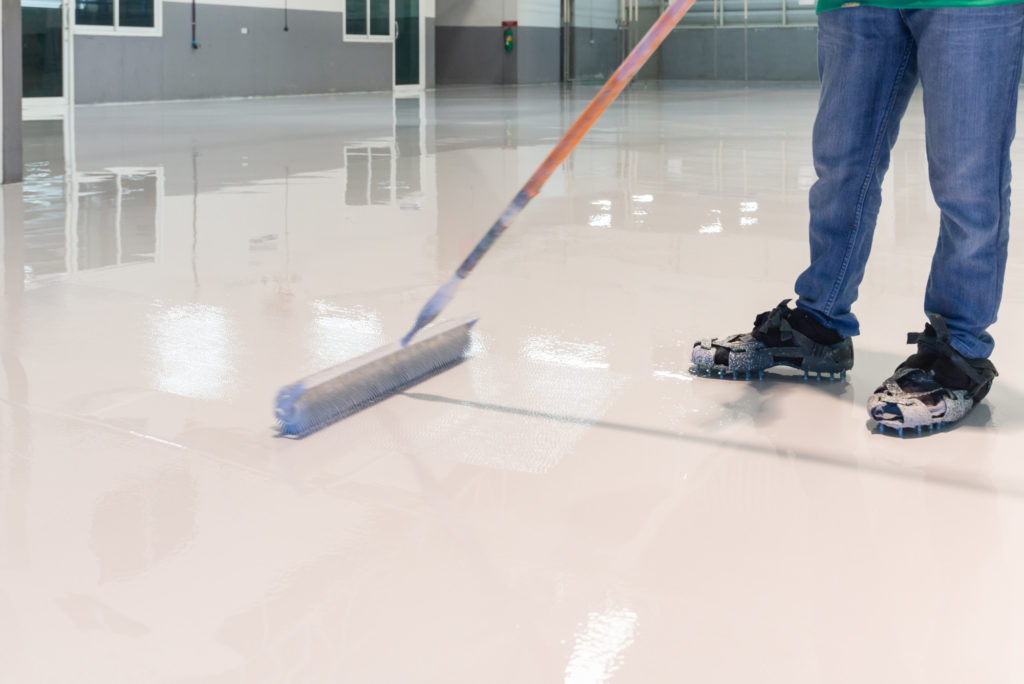
Floor levelling is a crucial component of any construction or renovation project, as it creates a solid and level foundation for your flooring. The process involves preparing the subfloor surface to ensure it is even and smooth before applying new flooring materials. Proper floor levelling guarantees that the finished floor will not only look attractive but also function optimally and last longer. If the floor is properly levelled, then only you can opt for future advancements like concrete resurfacing in Mornington Peninsula. By investing in floor levelling, you can prevent potential structural issues and avoid costly repairs down the line that may arise due to uneven surfaces or inadequate support.
Floor levelling is a construction technique used to correct uneven subfloors, ensuring they are flat and stable before new flooring is installed. The goal is to create a surface that provides the necessary support for flooring materials, helps prevent moisture buildup, and offers a smooth and level foundation for any type of flooring, such as hardwood, tile, or carpet. The levelling process may involve using different methods and materials depending on the subfloor’s condition and the desired outcome.
Various techniques can be used during the floor levelling process, such as applying self-levelling compounds or sanding down high spots. These techniques ensure that the subfloor is adequately prepared for new flooring. Whether working on a small residential project or a large commercial space, achieving a level floor is essential for the longevity, appearance, and performance of the installed flooring.
One popular method of floor levelling involves using a self-levelling concrete compound. This compound, which consists of cement, water, and other additives, is applied to the subfloor to create an even and level surface. Once the compound is poured, it spreads out across the floor, filling in low spots and smoothing out the surface to create a perfectly level base for the new flooring.
One of the primary benefits of concrete levelling is the improvement it brings to the overall appearance of the finished floor. A smooth and even surface ensures that the flooring material lies flat, making the finished product look uniform and professional. This is especially important for homeowners or businesses installing hardwood, tile, or other flooring types that require precision for proper installation. Uneven subfloors can cause unsightly gaps or misalignments in the flooring, but concrete levelling eliminates these issues.
Another significant advantage of concrete levelling is its ability to prevent moisture accumulation in the flooring. Uneven subfloors can create pockets where water can collect, leading to issues such as mould, mildew, and water damage. By levelling the floor, you ensure that water drains properly and does not pool in one spot, thereby protecting both the flooring material and the subfloor beneath it.
Concrete levelling can also contribute to the longevity of your flooring. A level surface provides better support for the flooring material, reducing the wear and tear that can occur over time on uneven floors. This means your flooring will last longer and require less maintenance, saving you money in the long run. Concrete levelling means a lot when it comes to driveway cleaning and sealing in Clyde.
Safety is another important benefit of floor levelling. Uneven floors can create tripping hazards, posing risks to the occupants of the home or building. By levelling the floor, you eliminate these hazards and create a safer environment for everyone. This is particularly important in commercial and industrial settings where safety is a top priority.
A level floor is more than just a matter of aesthetics—it plays a critical role in the structural integrity of a building. Uneven surfaces can compromise the stability of the structure, potentially leading to damage or even collapse over time. A properly levelled floor ensures that the weight of the building is evenly distributed across the foundation, preventing undue stress on load-bearing walls and beams.
Additionally, an uneven floor can lower the value of a property. Prospective buyers or tenants may be deterred by floors that appear warped or sloped, making the property less attractive and harder to sell. By ensuring that your floors are level, you enhance the overall value of your home or building, making it more appealing to potential buyers.
The time required to level a floor varies depending on the size and complexity of the project. For a typical residential room, floor levelling can take anywhere from one to several days, depending on the severity of the unevenness. The process involves careful preparation, including cleaning the subfloor, applying the levelling compound, and allowing it to cure properly before installing the new flooring.
In contrast, larger commercial or industrial projects may take several weeks or even months to complete. This is especially true if the building is older and requires a complete structural overhaul before floor levelling can begin. These larger projects often involve coordination between engineers, architects, and contractors to address underlying issues before the levelling process can start.
Floor levelling is an essential step in any construction or renovation project that cannot be overlooked. By ensuring that the subfloor is even and stable, you create a solid foundation for the new flooring, improving its appearance, longevity, and performance. Concrete levelling, in particular, offers numerous benefits, including enhanced aesthetics, moisture prevention, improved safety, and increased flooring lifespan. While the time required for floor levelling can vary based on the project’s size and complexity, the long-term advantages make it a worthwhile investment for both residential and commercial properties.
We provide a comprehensive selection of customized concrete grinding, sealing, polishing, and surface preparation services for both indoor and outdoor environments in addition to our extensive commercial grind and seal services.